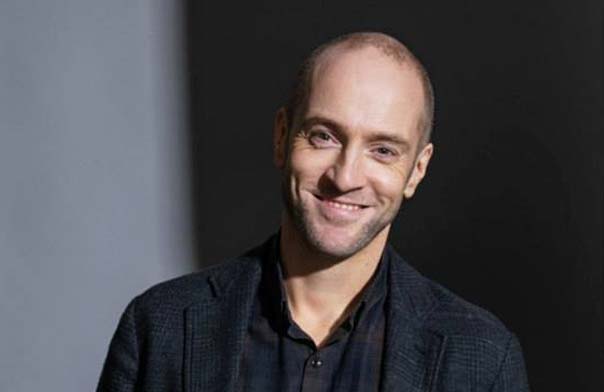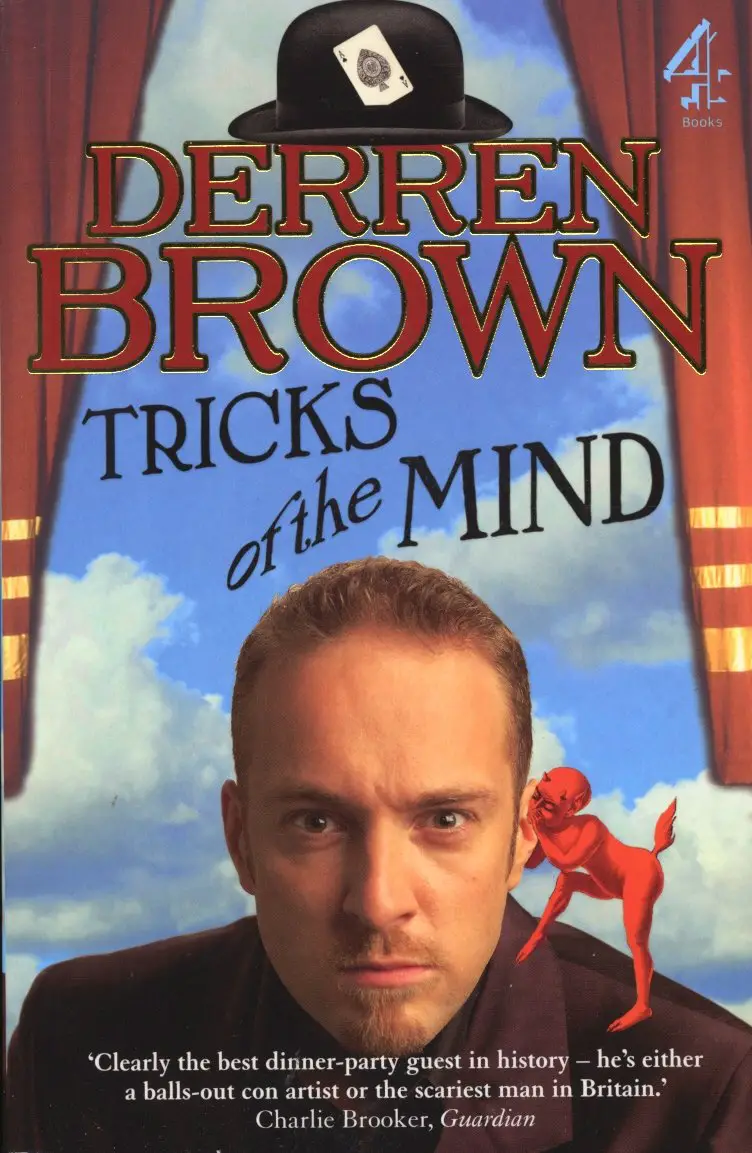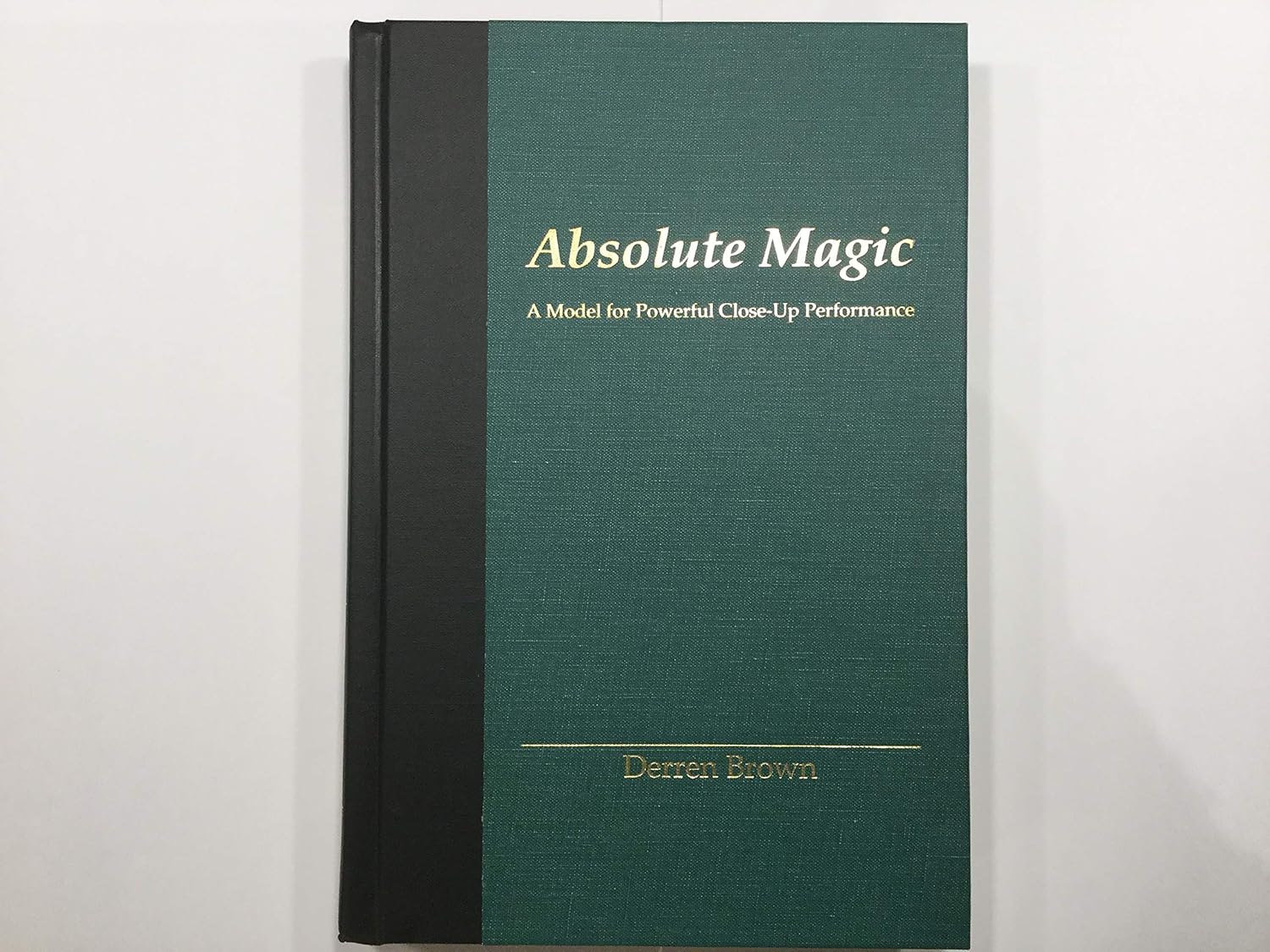Contents
Introduction
Derren Brown is a renowned British mentalist, illusionist, and author known for his captivating performances that blend psychology, magic, and suggestion. With a career spanning over two decades, Brown has garnered international acclaim through his television specials, stage shows, and bestselling books. His unique approach leverages principles of cognitive psychology, behavioral science, and neuro-linguistic programming (NLP) to create mesmerizing illusions and influence human behavior. Brown’s work has not only redefined the boundaries of magic and mentalism but also sparked discussions on the ethical implications of psychological manipulation and the power of the human mind.

This article explores Brown’s life, major theories, and the significant impact of his work on contemporary entertainment, psychology, and public perception of mentalism and magic.
Early Life and Education
https://en.wikipedia.org/wiki/Performance_artDerren Paul Brown was born on February 27, 1971, in Croydon, London, England. Growing up in a supportive family that encouraged his curiosity and creativity, Brown developed an early interest in magic and illusion. His fascination with the human mind and the mechanics behind magic tricks led him to explore the psychological aspects of performance art. Brown pursued higher education at the University of Bristol, where he studied law and criminology. However, his passion for magic and mentalism ultimately guided him toward a career in entertainment, where he could combine his academic interests with his creative talents.
Image Source: JLA Speaker Bureau

Educational Journey
| Aspect | Details |
|---|---|
| Undergraduate Education | Brown attended the University of Bristol, earning a degree in Law and Criminology. During his time at university, he balanced his academic pursuits with his growing interest in magic, performing at student events and honing his skills in mentalism and illusion. |
| Professional Training | Although Brown did not pursue formal training in psychology, his self-directed studies in cognitive science, behavioral psychology, and neuro-linguistic programming (NLP) have deeply influenced his performances. He continually educates himself through books, seminars, and collaboration with experts in various fields to refine his techniques and understanding of human behavior. |
| Early Performances | Brown began his career performing at local venues and private events, gradually building a reputation for his exceptional skills in mentalism and psychological manipulation. His early performances were marked by innovative techniques that combined traditional magic with contemporary psychological theories. |
| Television and Media | Brown’s breakthrough came with his television series on Channel 4, which showcased his ability to blend magic, suggestion, and psychological insights. This exposure catapulted him into the spotlight, leading to numerous TV specials, live shows, and international tours. |
Influences and Early Career
| Aspect | Details |
|---|---|
| Mentalism Pioneers | Brown was heavily influenced by legendary mentalists such as Derren’s mentor, Tony Corinda, and contemporaries like Paul Daniels and David Blaine. Their innovative approaches to mentalism inspired Brown to push the boundaries of the art form. |
| Cognitive Psychology | Brown’s performances are deeply rooted in cognitive psychology, particularly in areas such as perception, memory, and decision-making. His understanding of these principles allows him to create illusions that appear to manipulate the audience’s thoughts and behaviors. |
| Neuro-Linguistic Programming (NLP) | Brown incorporates NLP techniques into his acts, using language patterns and psychological triggers to influence audience members’ perceptions and responses. This integration of NLP enhances the effectiveness of his mentalism and illusionist performances. |
| Behavioral Science | Insights from behavioral science, including theories of conditioning and social influence, play a crucial role in Brown’s approach to creating persuasive and believable illusions. He utilizes these concepts to shape audience expectations and guide their experiences during his performances. |
| Ethical Considerations | Influenced by debates in psychology regarding the ethics of manipulation and influence, Brown maintains a commitment to ethical practices in his performances. He emphasizes informed consent and transparency about the nature of his illusions, ensuring that his work respects the autonomy and well-being of his audience members. |
Major Theories and Work

Psychological Manipulation and Suggestion
Derren Brown is best known for his mastery of psychological manipulation and suggestion, techniques that form the foundation of his mentalism and illusionist performances. Key elements of this theory include:
- Cold Reading: Brown employs cold reading techniques to make accurate and seemingly insightful statements about audience members. By observing body language, facial expressions, and other subtle cues, he creates the illusion of possessing extraordinary perceptive abilities.
- Anchoring and Priming: Utilizing principles of anchoring and priming from cognitive psychology, Brown subtly influences the audience’s thoughts and reactions. By introducing specific words, gestures, or symbols, he sets psychological anchors that guide the audience’s responses throughout his performances.
- Social Proof and Authority: Brown leverages the concepts of social proof and authority to establish credibility and influence audience behavior. By presenting himself as an authoritative figure and showcasing testimonials or endorsements, he enhances the persuasive power of his illusions.
Image Source: Psychology at Work – Substack

Illusionism and Magic Integration
Brown seamlessly integrates traditional magic techniques with psychological principles to create captivating illusions that challenge the audience’s perception of reality. Key aspects include:
- Misdirection: Mastering the art of misdirection, Brown directs the audience’s attention away from the mechanics of his tricks, focusing their perception on the outcome rather than the process.
- Dual Reality: Brown often employs dual reality techniques, where the audience perceives different aspects of the performance simultaneously. This creates a layered experience where the visible actions diverge from the audience’s perceived reality, enhancing the sense of wonder and mystery.
- Interactive Illusions: Many of Brown’s illusions are interactive, involving audience participation to heighten engagement and immersion. By involving participants directly, he personalizes the experience and increases the impact of his psychological manipulation.
Image Source: Daily Mail

Cognitive Neuroscience and Perception
Drawing from cognitive neuroscience, Brown explores how the brain processes information and constructs reality. His work delves into the neural mechanisms that underpin perception, memory, and attention, using this knowledge to craft illusions that manipulate these processes. Key points include:
- Perceptual Engineering: Brown designs illusions that exploit the brain’s perceptual shortcuts and biases, creating experiences that appear impossible or supernatural. By understanding how the brain interprets sensory information, he can manipulate perceptions in subtle yet profound ways.
- Memory Manipulation: Leveraging the malleability of human memory, Brown creates scenarios where participants recall events differently or experience fabricated memories.
- Attention and Focus: By directing and manipulating attention, Brown controls what the audience perceives and what remains unnoticed. This control over attention is crucial for the effectiveness of his illusions, ensuring that key elements of the trick remain hidden.
Image Source: Simply Psychology
Famous Books and Publications

Derren Brown Tricks Of Mind

Happy: Why More or Less Everything is Absolutely Fine

Absolute Magic

A Book of Secrets: Finding comfort in a complex world
Influence on Contemporary and Future Research
- Applied Psychology: Derren Brown’s techniques serve as valuable case studies for applied psychology, particularly in fields like cognitive behavioral therapy (CBT), social psychology, and human-computer interaction. Researchers are exploring how his methods can be adapted for therapeutic and educational settings, enhancing understanding and application of psychological principles.
- Neuroscience of Perception: His emphasis on the neuroscience of perception has inspired studies investigating how the brain constructs reality and how illusions can modify perceptual experiences. This research contributes to a deeper understanding of sensory processing, cognitive biases, and the mechanisms underlying human perception.
- Ethics of Influence: Brown’s focus on ethical practices in psychological manipulation has significantly influenced research on the ethics of influence and persuasion. Scholars are examining the moral implications of employing psychological techniques across various contexts, including entertainment, marketing, and interpersonal communication.
- Technology and Virtual Reality: Brown’s incorporation of technology into his performances has stimulated research into the use of virtual reality (VR) and augmented reality (AR) for creating immersive psychological experiences. This work investigates how technology can enhance or alter human perception, providing insights into user experience design.
- Human-Computer Interaction (HCI): Insights drawn from Brown’s performances inform the design of user interfaces and interactive systems that utilize psychological principles to boost user engagement. This research aims to create more intuitive and effective interactions between humans and technology, enhancing overall user experience.
Influencers and Collaborators Influenced by Derren Brown

- Michael Shermer: A noted skeptic and founder of The Skeptics Society, Shermer has engaged with Derren Brown’s work to investigate the psychological underpinnings of illusion and deception. His explorations contribute to broader discussions on the science of magic, encouraging critical thinking and skepticism about human perception and belief.
- Richard Wiseman: As a psychologist and author, Wiseman has collaborated with Brown on research projects that delve into the psychological aspects of magic and mentalism. Their joint efforts enhance the scientific understanding of performance art, exploring how psychological principles can be applied to create compelling illusions.
- Steven Pinker: A cognitive psychologist and linguist, Pinker has drawn on Brown’s insights into perception and cognition to inform his research on language and the human mind. By integrating Brown’s findings, Pinker expands the discourse on how cognitive processes shape our understanding of reality and communication.
- Yuval Noah Harari: The historian and author has referenced Brown’s work in discussions about the future of human cognition and the ethical implications of psychological manipulation. Harari’s engagement with Brown’s ideas highlights the importance of understanding cognitive processes in shaping societal norms and ethical frameworks.
- Sam Harris: A neuroscientist and philosopher, Harris has explored Brown’s ideas on consciousness and perception, integrating them into broader discussions about the nature of reality and the human mind. His engagement with Brown’s work promotes a deeper inquiry into how our perceptions influence our understanding of existence and morality.
Impact on Entertainment and Public Perception
- Influence on Modern Thought: Derren Brown’s innovative blending of psychology and magic has fundamentally altered the landscape of modern entertainment. His performances challenge traditional notions of magic, emphasizing the power of the human mind in influencing perception and decision-making. By integrating psychological principles into his acts, Brown has raised audience expectations and created a new genre of psychological entertainment that engages intellect and emotion, inspiring a shift in how mentalism and illusionism are perceived.
- Legacy and Recognition: Brown has received numerous accolades for his contributions to the fields of entertainment and psychology. These include the Royal Television Society Awards, honoring his exceptional work in blending magic with psychological insights in television specials. He has also been recognized with British Academy Television Awards (BAFTAs) for his innovative contributions to psychological entertainment. Additionally, he has been named Magician of the Year by various magic societies and has received honorary degrees from institutions acknowledging his impact on the intersection of psychology and public engagement. His legacy is evident in the evolution of mentalism as a respected and intellectually engaging form of entertainment, inspiring a new generation of performers and ensuring his influence endures.
Conclusion
Derren Brown’s pioneering work in mentalism and illusionism has had a profound and lasting impact on contemporary entertainment and the public’s understanding of psychological manipulation. By leveraging principles of cognitive psychology, behavioral science, and neuro-linguistic programming, Brown has created performances that challenge perceptions, influence behavior, and captivate audiences worldwide. His innovative approach has redefined the boundaries of magic and mentalism, fostering a deeper appreciation for the science behind illusion and the complexities of the human mind. Through his books, television specials, and live performances, Brown continues to inspire and engage, leaving an indelible mark on the fields of entertainment and psychology.
Bibliography
- Brown, D. (2006). Tricks of the Mind: What the Neuroscience of Magic Reveals about Our Brains. William Morrow.
- Brown, D., & Begley, S. (2018). Happy: Why More or Less Everything is Absolutely Fine. HarperCollins.
- Brown, D. (2019). Confessions of a Conjuror: A Memoir. HarperCollins.
- Brown, D. (2015). Psychological Warfare: How to Influence People and Win in Life. HarperCollins.
- Brown, D. (2020). Derren Brown: The Complete Collection. Penguin Books.
- Brown, D. (2011). “The Neuroscience of Magic“. Scientific American, June 2011.
- Brown, D. (2014). “How to Trick Your Brain“. TED Talk. Retrieved from https://www.ted.com/talks/derren_brown_how_to_trick_your_brain.
- Brown, D. (2008). “The Psychology Behind Illusion“. The New Yorker, September 2008.
- Brown, D. (2017). “Mind Games: The Intersection of Magic and Psychology”. Harvard Business Review, March 2017.
- Brown, D. (2021). “The Ethics of Influence: Balancing Entertainment and Manipulation“. Journal of Applied Psychology, 106(2), 345-360.
